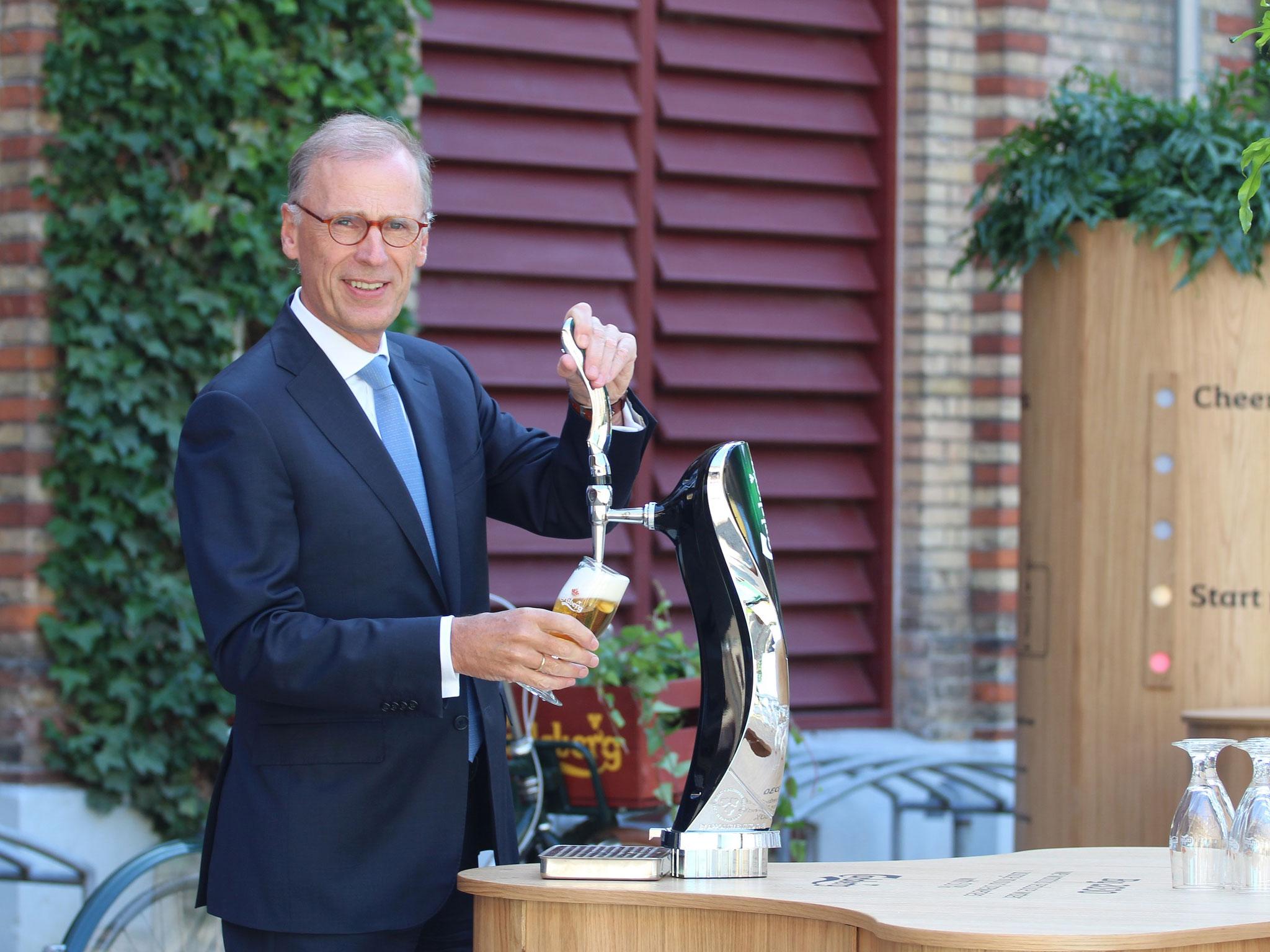Carlsberg CEO says food packaging reuse is one of most effective steps to more sustainable future
Exclusive: Cees’t Hart says mantra he lives by is 'reduce, reuse, recycle and rethink'

Your support helps us to tell the story
From reproductive rights to climate change to Big Tech, The Independent is on the ground when the story is developing. Whether it's investigating the financials of Elon Musk's pro-Trump PAC or producing our latest documentary, 'The A Word', which shines a light on the American women fighting for reproductive rights, we know how important it is to parse out the facts from the messaging.
At such a critical moment in US history, we need reporters on the ground. Your donation allows us to keep sending journalists to speak to both sides of the story.
The Independent is trusted by Americans across the entire political spectrum. And unlike many other quality news outlets, we choose not to lock Americans out of our reporting and analysis with paywalls. We believe quality journalism should be available to everyone, paid for by those who can afford it.
Your support makes all the difference.Reusing food packaging, like recycling paper cups, is one of the most effective steps towards a more sustainable future, the chief executive of Carlsberg has said.
Speaking to The Independent, Cees’t Hart said that, as head of one of the world’s biggest brewers, he “lives by the mantra of reduce, reuse, recycle and rethink”.
“I think we need all four to succeed. We are pushing the limits for what the future of packaging will look like and think the future holds great opportunities in that respect,” he said.
Carlsberg has been deeply committed to reducing its environmental impact. In June last year it launched a campaign to crack down on its carbon footprint and water waste.
At the end of last year it announced that its Falkenberg brewery in Stockholm was being fuelled 100 per cent by biogas and green electricity. Separately, it said that nine of its sites in China had converted from coal to cleaner energy sources. Overall, 46 per cent of the electricity that Carlsberg uses now comes from renewables and it is striving for a 100 per cent rate by 2022.
Asked what he thinks is the biggest challenge companies like Carlsberg face when it comes to enhancing sustainability, Mr Hart said that corporations have “overcome the first hurdle when [they] see that sustainability is not a hurdle at all”.
“At Carlsberg sustainability is really a part of our purpose and we have incrementally improved our performance for years,” he said. He also pointed out that Carlsberg – based in Denmark and famous for brands like Tuborg, Kronenbourg 1664, and Somersby ciders – has seen a 16 per cent reduction in carbon emissions and a 6 per cent reduction in water use at its breweries since 2015.
The CEO said that the responsibility for ensuring that corporates and individuals commit to a more environmentally friendly way of life has to be shared.
“With the Paris Agreement and the UN’s Sustainable Development Goals, there is a common focus for governments and businesses. Businesses are key to achieving these goals, and I think we and several other companies are showing that we are willing to make real progress today. And not in the distant future,” he said. But he also added that the world needs “high ambitions and leadership” and “people willing to deliver on the ambitions”.
One motivation for business leaders to rise to the challenge of creating a more sustainable company, he said, might be that shareholders and customers are changing their attitude towards ethical issues like sustainability.
“We are increasingly seeing interest from all sides. From consumers, from employees and from investors. Not to mention our customers. Employees want to work for a business that does the right thing, and investors want a more resilient business. We can deliver both – at the same time,” he said.
Earlier this year, MPs called for drastic action to tackle the UK’s mountain of unrecycled disposable coffee cups, demanding a new 25p tax on every one used – a move backed by The Independent through its Cut the Cup Waste campaign.
Join our commenting forum
Join thought-provoking conversations, follow other Independent readers and see their replies
Comments